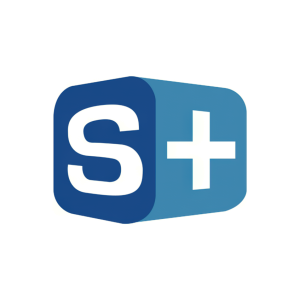Simulations Plus and the University of Pittsburgh Drug Discovery Institute Receive SBIR Grant Funding for Large Molecule Safety Collaboration
Simulations Plus, Inc. (Nasdaq: SLP) has announced a Phase I NIH-funded SBIR grant received jointly with the University of Pittsburgh Drug Discovery Institute. The grant aims to develop a beta version of DILIsym software integrated with UPDDI’s vLAMPS experimental liver model for predicting the safety of large molecules, such as proteins used in new therapies. Success in this phase could lead to a larger Phase II grant for full commercial development.
This collaboration addresses safety concerns related to large molecule therapeutics, enhancing drug development processes.
- Acquisition of a Phase I NIH-funded SBIR grant to enhance drug safety predictions.
- Collaboration with the University of Pittsburgh could lead to innovative therapeutic developments.
- Focus on integrating DILIsym software with advanced liver models for better safety assessments.
- None.
Insights
Analyzing...
Simulations Plus, Inc. (Nasdaq: SLP), a leading provider of modeling and simulation software and services for pharmaceutical safety and efficacy, today announced that its DILIsym Services (DSS) division and the University of Pittsburgh Drug Discovery Institute (UPDDI) have jointly received a Phase I NIH-funded SBIR grant to combine the highly successful DSS software (DILIsym) and UPDDI’s vLAMPS experimental liver model and the microphysiology systems database (MPS-Db) to predict the safety of large (macro) molecules such as proteins that are increasingly used to treat diseases. The first phase of development funded by the grant will include beta version software construction and vLAMPS testing of several large molecules captured in the MPS-Db. Successful completion of the objectives will lead to an application for a larger Phase II grant, which would fully fund the development of the joint commercial offering.
DSS coordinates the DILI-sim Initiative, which is a public-private partnership that has guided development of the DILIsym® software package. This software uses properties of drugs to predict their risk of causing liver injury in patients, and is now widely used to support key drug development decisions. To date, this approach has been successfully applied to traditional small molecule drugs. Similarly, the UPDDI has developed the vLAMPS and MPS-Db technologies for other drug development applications. The focus on large molecule safety in an integrated fashion represents an important new direction for both organizations, allowing them to support development of safer large molecule therapeutics.
Dr. Paul B. Watkins, the Director of the Institute for Drug Safety Sciences at University of North Carolina and chair of the Scientific Advisory Board of the DILI-sim Initiative, said: “Large molecules, such as monoclonal antibodies, have become the hottest target for drug development. However, these therapeutics are not without liver safety liabilities that are currently very hard to predict. I believe that this collaboration, which received very high priority for funding, will help solve this problem.”
Dr. Brett A. Howell, President of DILIsym Services, added: “The development of novel therapeutics involving larger and more complex molecules is ever-increasing. This collaboration will allow DSS to remain at the forefront of drug safety prediction innovation and expand our product offerings.”
Dr. D. Lansing Taylor, Director of the UPDDI, Distinguished Professor and Allegheny Foundation Professor of Computational and Systems Biology, stated: “The integration of our biomimetic human liver MPS (vLAMPS) with the MPS-Db and DILIsym computational modeling is a powerful application of quantitative systems pharmacology (QSP) to large molecule safety and will advance large molecule safety testing.”
About Simulations Plus, Inc.
Simulations Plus, Inc., is a leading provider of modeling and simulation software and consulting services supporting drug discovery, development research, and regulatory submissions. With our subsidiaries, Cognigen, DILIsym Services, and Lixoft, we offer solutions which bridge machine learning, physiologically based pharmacokinetics, quantitative systems pharmacology/toxicology, and population PK/PD modeling approaches. Our technology is licensed and applied by major pharmaceutical, biotechnology, chemical, consumer goods companies and regulatory agencies worldwide. For more information, visit our website at www.simulations-plus.com.
The DILIsym Services division of Simulations Plus has developed DILIsym® and NAFLDsym® QSP software, and is developing IPFsym™ and RENAsym™ QSP software, to provide the pharmaceutical industry with the tools and resources to efficiently develop safe and effective drug therapies. DILIsym and RENAsym are designed to address drug-induced liver injury (DILI) and drug-induced acute kidney injury, respectively. NAFLDsym and IPFsym are designed for target or compound evaluation of therapeutic efficacy in nonalcoholic fatty liver disease (NAFLD or NASH) and idiopathic pulmonary fibrosis (IPF), respectively. More information is available on the company’s web page.
About the University of Pittsburgh Drug Discovery Institute (UPDDI)
The UPDDI applies QSP and human MPS to understand the mechanisms of disease progression, as well as to predict potential therapeutics for diseases such as non-alcoholic fatty liver disease (NAFLD), type 2 diabetes, cancer and neurodegenerative diseases, and to identify mechanisms of toxicology.
Safe Harbor Statement Under the Private Securities Litigation Reform Act of 1995 – With the exception of historical information, the matters discussed in this press release are forward-looking statements that involve a number of risks and uncertainties. Words like “believe,” “expect,” and “anticipate” mean that these are our best estimates as of this writing, but that there can be no assurances that expected or anticipated results or events will actually take place, so our actual future results could differ significantly from those statements. Factors that could cause or contribute to such differences include, but are not limited to: our ability to maintain our competitive advantages, acceptance of new software and improved versions of our existing software by our customers, the general economics of the pharmaceutical industry, our ability to finance growth, our ability to continue to attract and retain highly qualified technical staff, our ability to identify and close acquisitions on terms favorable to the Company, and a sustainable market. Further information on our risk factors is contained in our quarterly and annual reports and filed with the U.S. Securities and Exchange Commission.
Follow us on Twitter | LinkedIn | YouTube
View source version on businesswire.com: https://www.businesswire.com/news/home/20210223005305/en/







